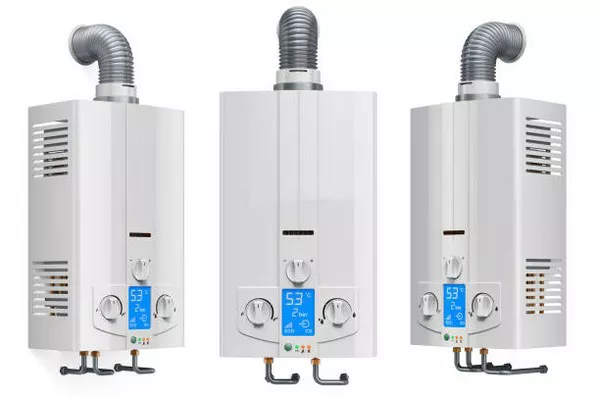Power outages can strike at any time, and in today’s interconnected world, a reliable source of electricity is essential for maintaining our comfort, safety, and productivity. This is where home generators come into play. Choosing the right generator for your home is a critical decision that requires careful consideration of various factors. In this article, we will explore the different types of generators available and provide guidance on selecting the best one to meet your specific needs.
Understanding the Basics
Before diving into the details, it’s important to understand the fundamental aspects of generators. Generators are devices that convert mechanical energy into electrical energy. They work by spinning a coil of wire within a magnetic field, creating an electric current. In a home setting, generators are used to provide backup power during outages or as a primary source of electricity in areas with unreliable grid power.
Types of Home Generators
Portable Generators
Portable generators are versatile and easy to move around, making them a popular choice for homeowners. They typically run on gasoline or propane and come in various sizes.
Advantages: Affordable, easy to store, and suitable for temporary power needs.
Considerations: Limited power capacity, manual start, and fuel storage requirements.
Standby Generators
Standby generators are permanently installed and connected to your home’s electrical system. They automatically turn on when the power goes out and run on natural gas or propane.
Advantages: Seamless transition during outages, higher power capacity, and low maintenance.
Considerations: Higher upfront costs, professional installation required, and fuel dependency.
Inverter Generators
Inverter generators are a type of portable generator known for their clean and stable power output. They are often used for sensitive electronics.
Advantages: Quiet operation, fuel-efficient, and suitable for camping or recreational use.
Considerations: Limited power output compared to larger generators.
Assessing Your Power Needs
The first step in choosing the best generator for your home is to assess your power needs. Consider the following factors:
Essential Appliances: Identify the critical appliances and systems you want to power during an outage. These typically include refrigerators, freezers, heating or cooling systems, lighting, and communication devices.
Power Consumption: Calculate the wattage requirements of these essential appliances. You can find this information on their nameplates or in the user manuals. Add up the wattages to determine the total power needed.
Starting vs. Running Watts: Some appliances, like refrigerators and air conditioners, require more power to start (starting watts) than to run continuously (running watts). Make sure your generator can handle both the starting and running wattage of your appliances.
Sizing the Generator: Choose a generator with a wattage rating that exceeds your calculated power needs. It’s better to have some extra capacity to accommodate additional appliances or future needs.
Fuel Source Considerations
The choice of fuel source for your generator is a crucial decision that affects its performance, convenience, and long-term costs. Here are the primary fuel options:
Gasoline: Portable generators often run on gasoline, which is readily available. However, gasoline can be less stable over time and has a shorter shelf life than other fuels.
Propane: Propane generators are cleaner-burning and have a longer shelf life than gasoline. Propane is typically stored in tanks and can be readily available if you have a supply.
Natural Gas: Standby generators commonly run on natural gas, which is delivered through a utility line. This eliminates the need for refueling but requires a professional installation and a natural gas connection.
Diesel: Diesel generators are known for their durability and fuel efficiency. They are commonly used in industrial settings and larger backup power systems.
Consider your access to these fuel sources and their availability in your area when choosing a generator. Keep in mind that standby generators can be connected directly to your home’s natural gas supply, providing a continuous and convenient fuel source.
Transfer Switches and Installation
When installing a standby generator, you will need a transfer switch. This device ensures a safe and seamless transition from grid power to generator power. There are two main types of transfer switches:
Manual Transfer Switch: Requires manual activation to switch power sources. It is more affordable but requires manual intervention during an outage.
Automatic Transfer Switch (ATS): Automatically detects a power outage and switches to generator power without any manual input. This option offers convenience but is more expensive.
Installation of a standby generator and transfer switch should be performed by a licensed electrician or a qualified professional. Improper installation can be dangerous and may void warranties.
Considerations for Portable Generators
If you opt for a portable generator, there are additional factors to consider:
Portability: Ensure that the generator is easy to transport and set up. Wheels and handles can make it more manageable.
Noise Level: Portable generators can be noisy, so consider models with noise-reduction features if noise is a concern.
Runtime: Check the generator’s runtime on a single tank of fuel and consider the need for refueling during extended outages.
Safety: Use a transfer switch or an interlock kit to connect the portable generator to your home safely. Never operate a generator indoors, as this can lead to carbon monoxide poisoning.
Maintenance and Longevity
Proper maintenance is essential to ensure the longevity and reliability of your generator. Regular tasks include changing oil, inspecting fuel levels, testing the unit, and keeping the generator clean. Follow the manufacturer’s maintenance schedule and guidelines to prevent issues during critical times.
Conclusion
Selecting the best generator for your home involves a thorough assessment of your power needs, fuel source considerations, and installation requirements. Whether you choose a portable generator for temporary use or a standby generator for continuous protection, the decision should align with your specific needs and budget. Remember that proper maintenance and safety measures are crucial for the reliable operation of your generator. By making an informed choice, you can ensure that your home remains powered and comfortable during unexpected outages.

